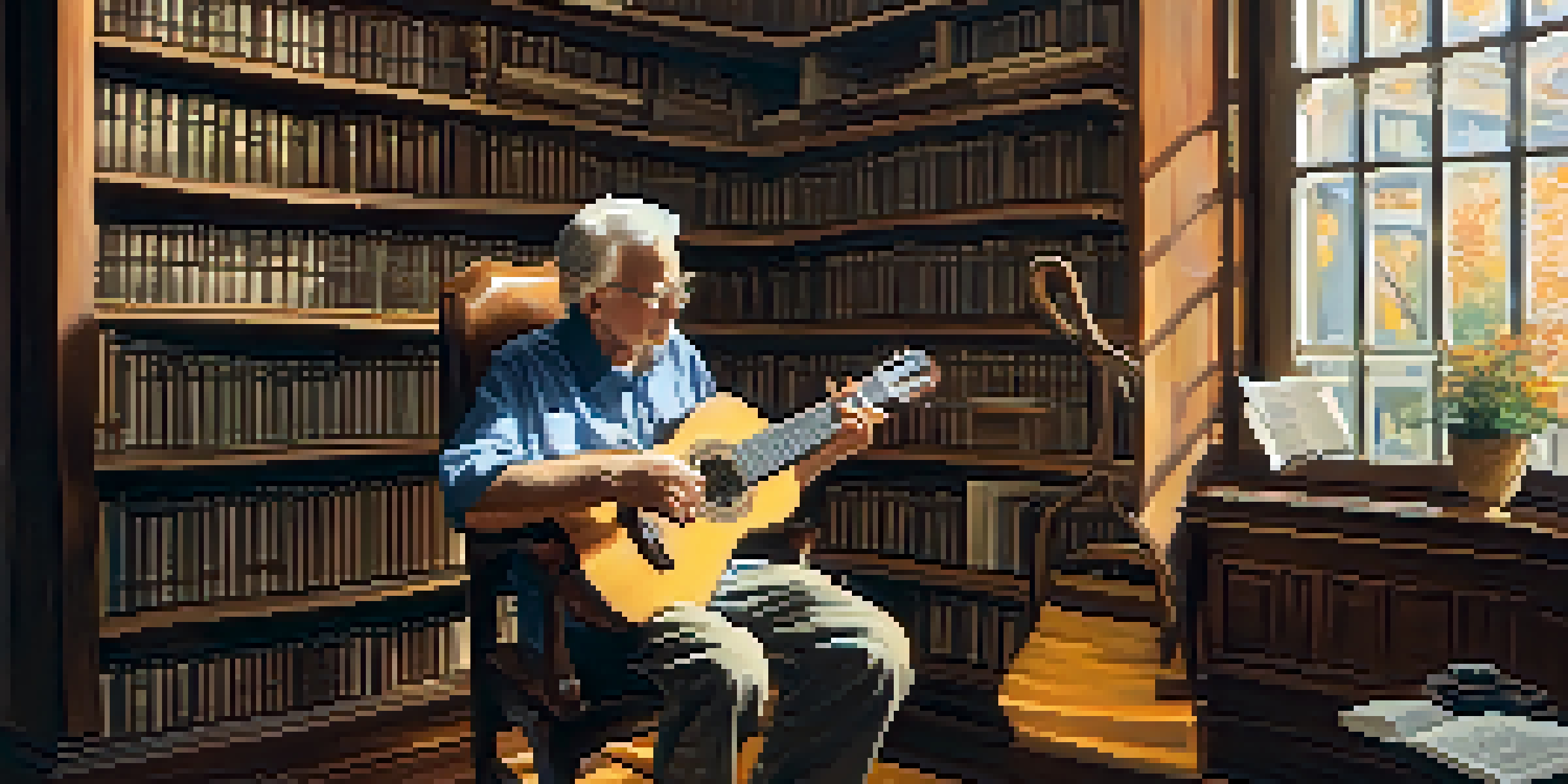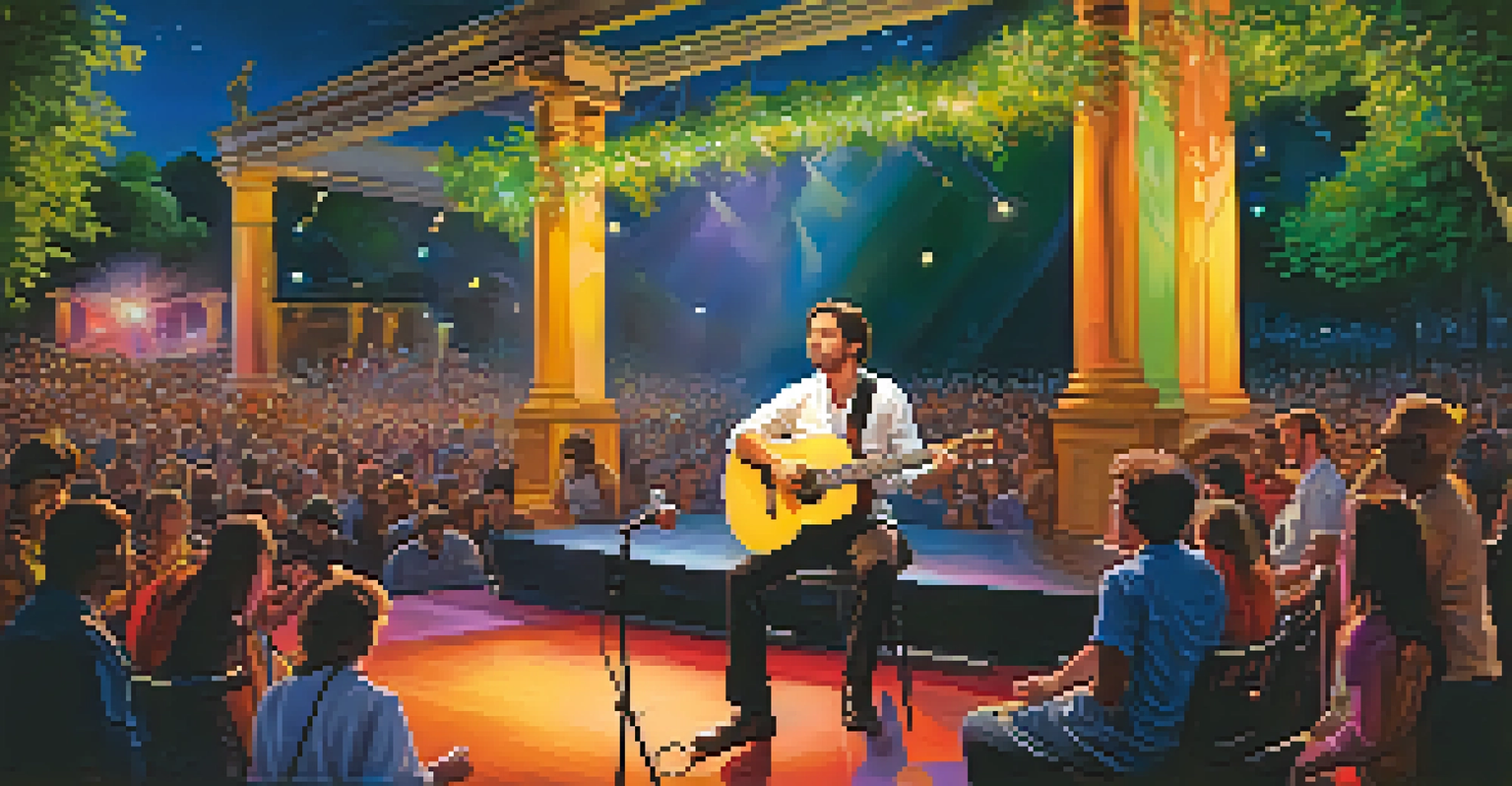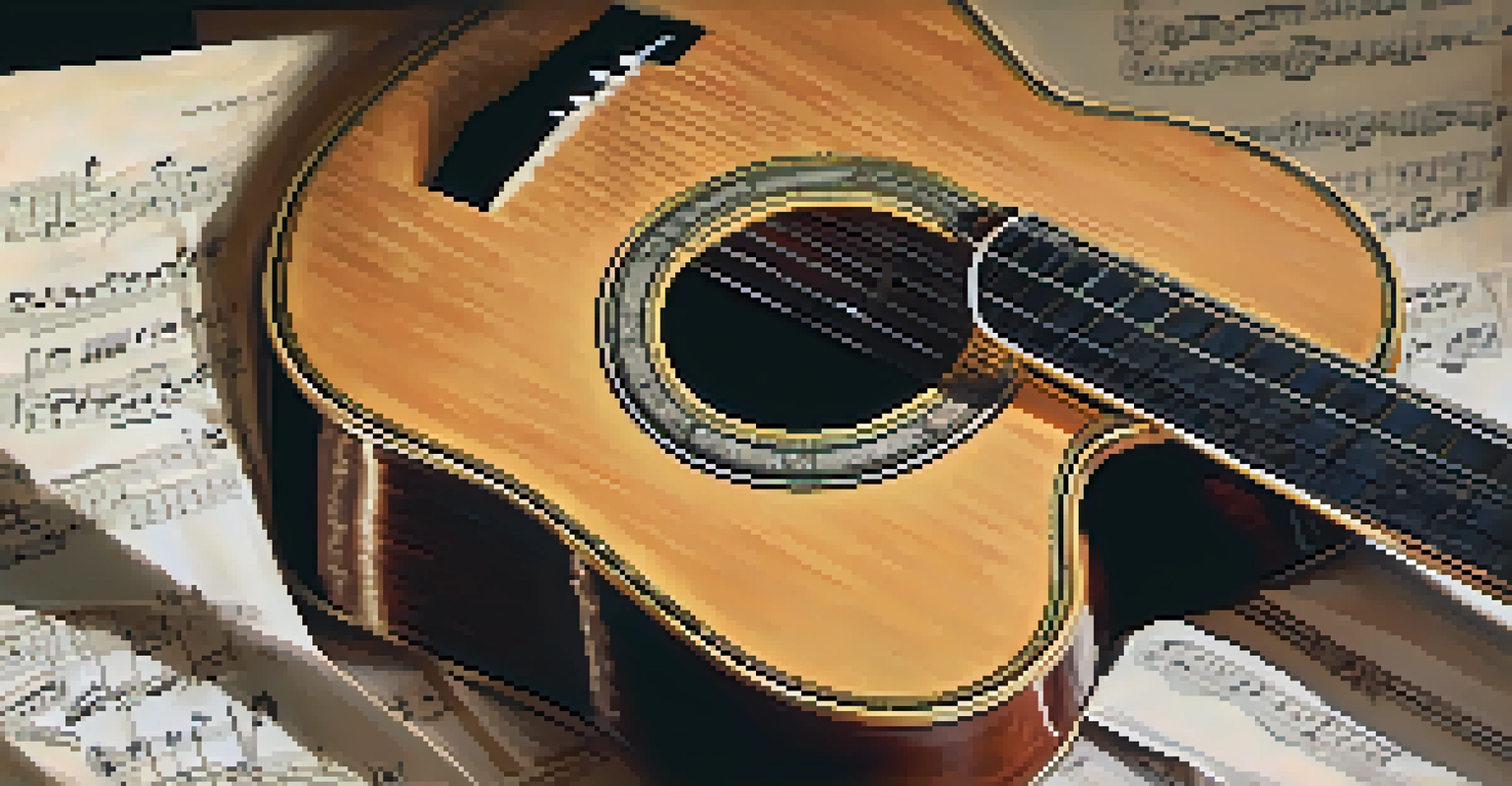The Influence of Andrés Segovia on Classical Guitar Music

Andrés Segovia: A Pioneer of Classical Guitar
Andrés Segovia is often hailed as the father of modern classical guitar. His commitment to the instrument brought it from the fringes of the music world into the spotlight. By showcasing the guitar’s potential through his performances, Segovia inspired a generation of musicians to explore its depths.
The guitar is a small orchestra. It is polyphonic. Every string is a different color, a different voice.
Before Segovia, the guitar was primarily seen as a folk instrument, often overlooked by classical music circles. He changed that perception by elevating the guitar to a position of respect among traditional classical instruments. His passion and dedication played a crucial role in redefining what the guitar could achieve.
Through his innovative techniques and expressive playing style, Segovia opened new avenues for composers and performers alike. He demonstrated that the guitar could convey a wide range of emotions, just like a piano or violin. This shift laid the groundwork for future generations of classical guitarists.
Reviving and Expanding the Repertoire
One of Segovia's most significant contributions was his effort to expand the classical guitar repertoire. He not only performed traditional pieces but also commissioned new works from contemporary composers. This initiative not only enriched the guitar's repertoire but also encouraged creativity within the genre.

By adapting existing compositions for the guitar, Segovia introduced audiences to music they might never have encountered otherwise. His transcriptions included works by composers such as Bach and Albeniz, which showcased the guitar's versatility. This blending of styles and eras helped bridge the gap between classical and popular music.
Elevating the Classical Guitar
Andrés Segovia transformed the perception of the classical guitar, bringing it from the fringes of music to the forefront with his innovative performances.
Moreover, Segovia's ability to interpret these pieces with a unique flair made them accessible to a wider audience. He had a knack for presenting complex compositions in a way that resonated with listeners, regardless of their musical background. This approach not only popularized classical guitar but also invited more people to appreciate its beauty.
Innovations in Technique and Performance
Segovia was not just a performer; he was also an innovator. His technical prowess led him to develop new playing techniques that enhanced the guitar's expressiveness. For example, his use of fingerpicking allowed for more intricate melodies and harmonies, setting a standard for future guitarists.
Music is the universal language of mankind.
His performances were characterized by a deep emotional connection to the music, often drawing on the nuances of dynamics and phrasing. Segovia understood that the guitar could convey feelings in ways other instruments could not, and he made it his mission to showcase that potential. His performances often left audiences spellbound, creating a lasting impression of the guitar's capabilities.
Additionally, Segovia's emphasis on clarity and precision in playing influenced many aspiring guitarists. He taught that every note should be articulated with intention, a principle that continues to guide classical guitarists today. This focus on technique not only improved the quality of guitar playing but also instilled a sense of discipline among students.
Global Influence and Cultural Exchange
Segovia's impact extended far beyond Spain; he became a global ambassador for classical guitar music. His tours across Europe and the Americas helped to establish a worldwide appreciation for the instrument. This cultural exchange allowed for the blending of different musical styles and traditions, enriching the classical guitar genre.
By performing in diverse locations, Segovia showcased the adaptability of the guitar to various musical traditions. He collaborated with musicians from different backgrounds, incorporating elements from folk and jazz music into his performances. This willingness to experiment opened the door for future collaborations within the classical music community.
Expanding Guitar Repertoire
Segovia significantly enriched the classical guitar repertoire by commissioning new works and adapting existing compositions, showcasing the guitar's versatility.
As a result, Segovia's influence can be felt in various music scenes around the world. Many modern guitarists credit him as a key figure in their musical journeys, often citing his recordings and performances as inspirations. His legacy lives on through the continued evolution of classical guitar music.
Segovia's Educational Contributions
Segovia was not only a performer but also a dedicated educator. He taught masterclasses and lessons, imparting his knowledge and passion for the guitar to countless students. His teaching methods emphasized not just technique, but also the importance of musical interpretation and expression.
Many of Segovia's students went on to become successful guitarists, carrying forth his teachings and philosophies. They helped to spread his influence even further, ensuring that his approach to music would continue to inspire future generations. The ripple effect of his educational efforts is still evident in guitar programs around the world today.
Moreover, Segovia authored instructional materials that remain valuable resources for aspiring guitarists. His writings provide insight into his artistic process and the technical skills required to master the instrument. This commitment to education solidifies his role as a transformative figure in the world of classical guitar.
Recognition and Awards
Throughout his illustrious career, Segovia received numerous accolades for his contributions to music. He was awarded honorary doctorates and prestigious awards, recognizing his role in elevating the guitar. These honors serve as a testament to his impact on both the classical music community and the wider world of music.
Segovia's recordings also garnered critical acclaim, with many of his albums becoming benchmarks for classical guitar performance. His interpretations are often used as reference points by both students and professionals alike. This level of recognition underscores the high regard in which he is held within the music industry.
Global Influence and Education
As a global ambassador for classical guitar, Segovia's performances and teachings inspired countless musicians worldwide, ensuring his legacy endures.
Even after his passing, Segovia's legacy continues to be celebrated through various awards and competitions named in his honor. These initiatives aim to promote and recognize excellence in classical guitar, ensuring that his influence endures for future generations. His name remains synonymous with quality and artistry in the realm of classical guitar.
The Enduring Legacy of Andrés Segovia
Andrés Segovia's influence on classical guitar music is immeasurable. His efforts to elevate the instrument, expand its repertoire, and share his knowledge have left a lasting mark on the musical world. Today, guitarists continue to draw inspiration from his techniques, performances, and teachings.
Segovia's approach to music emphasized emotional expression and technical precision, principles that resonate with musicians still. He not only changed how the guitar is perceived but also paved the way for future innovations within the genre. His legacy is a rich tapestry of artistic exploration that inspires countless musicians.

As we reflect on Segovia's contributions, it's clear that his impact transcends generations. The guitar, once seen as a humble instrument, is now celebrated in concert halls worldwide, thanks in large part to his vision. Andrés Segovia's spirit lives on in every note played on the classical guitar, reminding us of the beauty and depth the instrument holds.